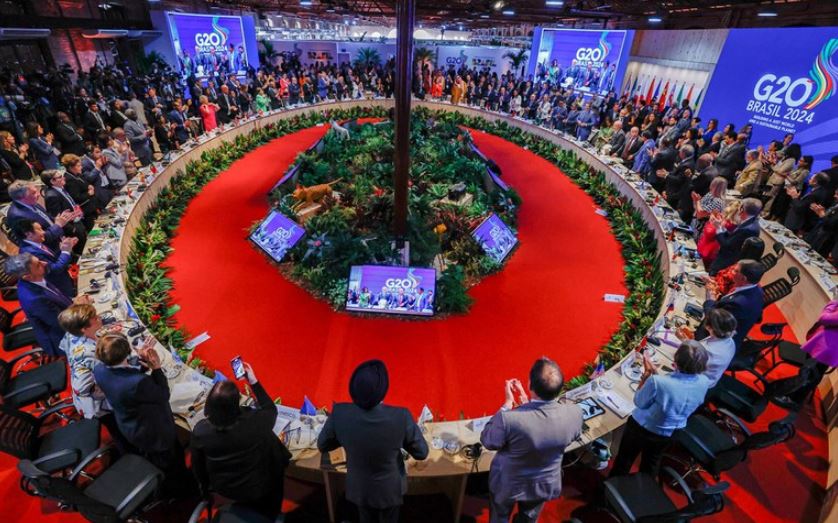
Published 15/11/2024 15:47 | Edited 15/11/2024 15:48
Governments, multilateral organizations, development banks and philanthropic institutions anticipated this Friday (15) the main goals of the Global Alliance against Hunger and Poverty that will be launched during the G20 Summit meeting, which takes place next Monday ( 18) and Tuesday (19), in Rio de Janeiro.
Among the priorities is reaching 500 million people with income transfer programs and social protection systems in low- and lower-middle-income countries by 2030.
The collective effort also involves expanding high-quality school meals to an additional 150 million children in countries with hunger and endemic child poverty.
Initiatives in maternal health and early childhood will aim to reach another 200 million women and children aged 0 to 6 years.
Read more: G20: Global Alliance against Hunger gains strength with support from new countries
Called global solidarity, the organizations want to implement socioeconomic inclusion programs to reach an additional 100 million people, with a focus on women.
The IDB and World Bank will provide billions in financing for countries to implement programs in the Global Alliance’s policy basket.
Multilateral development financing will be essential to scale up these initiatives.
The president of the Inter-American Development Bank (IDB), Ilan Goldfajn, announced, for example, additional financing of US$25 billion to support the implementation of national policies in the Global Alliance policy suite.
“With the launch of the Global Alliance against Hunger and Poverty, Brazil is leading a global platform to implement public policies aimed at eradicating hunger and poverty around the world. The IDB is proud to join this alliance. We are fully committed to your mission and goals. Together, we have the power to end extreme poverty in Latin America by 2030. With Brazil’s leadership and the support of multilateral banks, we will have the structure, resources and expertise to transform our commitments into concrete actions with lasting impact,” said Goldfajn.
President Luiz Inácio Lula da Silva argues that as long as there are families without food on their tables, children begging on the streets and young people without hope of a better future, there will be no peace.
“The world produces enough food for everyone, and we know from experience that a series of well-designed public policies, such as income transfers, such as the Bolsa Família program, and nutritious school meals for children have the potential to end hunger and restore people’s hope and dignity”, assesses Lula.
Bolsa Família
UK Development Minister Anneliese Dodds said pioneering cash transfer programs such as Brazil’s Bolsa Família and Mexico’s Oportunidades have shown what is possible when much-needed funds are targeted at the world’s most vulnerable people. .
“For the first time, a broad coalition of countries, donors and knowledge organizations is making a joint effort to go even further. This will support the growth of income transfer programs around the world, saving and transforming lives”, predicts the minister.
These announcements are being presented at the Announcements 2030 “Sprints 2030” event for the Global Alliance Against Hunger and Poverty, which is being held this Friday, in the Kobra Space auditorium, at the G20 Social Summit, in Rio de Janeiro , in Praça Mauá.
Source: vermelho.org.br

